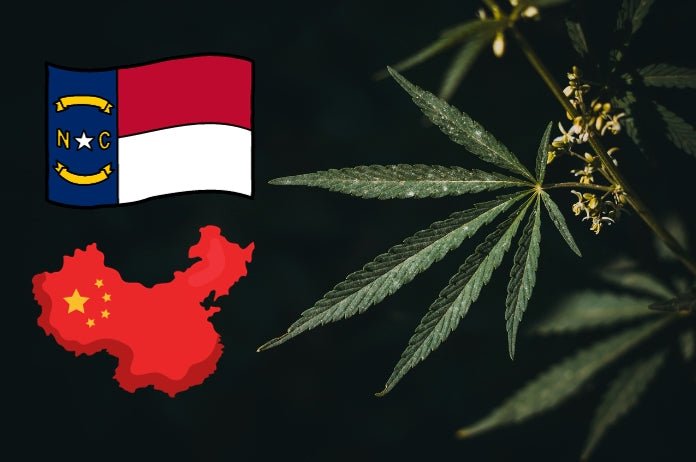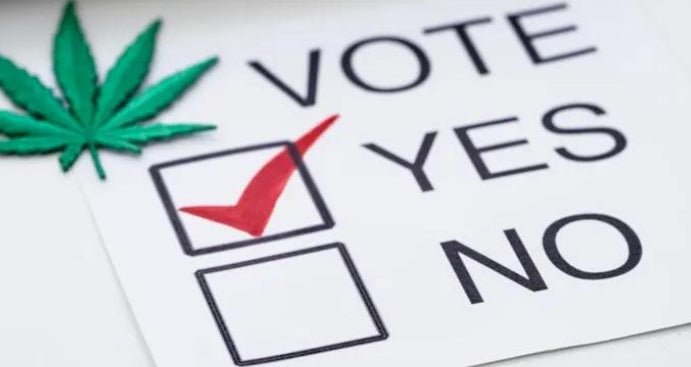The coalition of cultivators and manufacturers believe the new laws restricting the sale of hemp-derived cannabinoids are unconstitutional.

The latest legal drama concerning hemp is currently playing out in the country's youngest state, Alaska, as a group of motivated farmers and manufacturers mount a lawsuit against state officials over a new set of regulations aimed at severely restricting the sale of products containing hemp-derived cannabinoids.
According to numerous media outlets, an alliance of hemp growers and manufacturers has filed a lawsuit against the Alaska Department of Natural Resources (DNR), asserting that new limits on intoxicating hemp-based items are unconstitutional.
The plaintiffs in the case include the Alaska Industrial Hemp Association and four businesses, who filed the suit in U.S. District Court in Anchorage on Thursday. On the other side of the hotly debated issue are the DNR, its commissioner, the state director of agriculture, and Lt. Gov. Nancy Dahlstrom (R), who have all been named defendants in the lawsuit.
The new set of regulations, which took effect last Friday, were approved by Dahlstrom this past October. Under the new rules passed by Alaskan state lawmakers, hemp-based items with intoxicating psychoactive properties will now fall under the regulatory authority of the state's marijuana control board, requiring their removal from vape shops and other unregulated retail establishments throughout Alaska.
The new law also states in part that the DNR may not approve "an industrial hemp product that contains delta-9-THC."
For many hemp industry activists and stakeholders, this clampdown on hemp-derived, low-dose THC products is just another in a series of blatant political and legislative attacks by the deep-pocketed and greedy corporate cannabis lobby to destroy the young and still-developing hemp market sector.
It was, after all, members of the state's legal marijuana industry who relentlessly advocated for the changes, claiming they would help close a safety loophole created by the 2018 Farm Bill, which allowed the sale of intoxicating, cannabis-like drugs to Alaskans under 21 and without the taxes typically applied to cannabis products.
Critics of the new rules contend that the restrictions go too far and could severely inhibit the growth and development of the state's still relatively young and developing hemp industry.
Christopher Hoke, an attorney representing the plaintiffs in the lawsuit, believes the regulations will effectively make all of Alaska's hemp-derived products, including gummies, other edibles, and beverages, illegal.
To protect his clients' interests and to help provide relief for other businesses negatively impacted by the new law, Hoke has requested a temporary restraining order to prevent the ban from taking place while the lawsuit continues.
“We’re just harming our own here. We’ve asked for expedited consideration,” Hoke said.
"We’re just harming our own here. We’ve asked for expedited consideration.”
- Christopher Hoke, an Attorney representing the plaintiffs in the Alaskan lawsuit
Much of the legal basis for lawsuits like the one filed in Anchorage last week stems from the 2018 Farm Bill. That seminal piece of legislation legalized the cultivation, manufacturing, and sale of hemp and its derivative products. Cannabis law experts like Michelle Bodian, partner at the cannabis law firm Vicente LLP, explain that the action taken by the plaintiffs in the Alaska case is based on the same legal issues in similar suits brought in Florida, Texas, Arkansas, Georgia, Maryland, and Virginia.
"This is the second hemp product-related lawsuit this week and highlights yet again the need for a consistent national framework. The plaintiffs here make similar arguments as the plaintiffs in the other lawsuits to date, mainly that the amended Alaska regulations interfere with interstate commerce and are violations of the 2018 Farm Bill and the Constitution's dormant commerce clause, and that federal law preempts state law," Bodian states.
"This is the second hemp product-related lawsuit this week and highlights yet again the need for a consistent national framework. The plaintiffs here make similar arguments as the plaintiffs in the other lawsuits to date, mainly that the amended Alaska regulations interfere with interstate commerce and are violations of the 2018 Farm Bill and the Constitution's dormant commerce clause, and that federal law preempts state law."
- Michelle Bodian, Partner at the Cannabis Law Firm Vicente LLP
Bodian added that it is "hard to say for certain the chances of success, but so far, with these lawsuits, the wins outpace the losses."
The coalition's suit is also receiving strong support from hemp advocacy groups like the U.S. Hemp Roundtable (USHR). Jonathan Miller, general counsel for the USHR, believes the regulations are excessive and could seriously threaten the long-term viability of the hemp industry in Alaska.
"We strongly support the hemp growers' lawsuit. Alaska's new regulations, while introduced under the guise of restricting impairing products, would virtually eliminate the non-intoxicating hemp and CBD industries," Miller writes in an email.
"We strongly support the hemp growers' lawsuit. Alaska's new regulations, while introduced under the guise of restricting impairing products, would virtually eliminate the non-intoxicating hemp and CBD industries."
- Jonathan Miller, General Counsel for the U.S. Hemp Roundtable
"By banning products with any level of THC from the retail marketplace, Alaska would be prohibiting the vast majority of safe, healthy, non-intoxicating products that contain traces of THC but not at levels that would potentially impair consumers. This smacks of an unscrupulous effort to reduce competition while hiding behind false claims of consumer protection," Miller concludes.
Not surprisingly, the new rules on hemp products are being resoundingly supported by individuals and groups comprising Alaska's regulated marijuana market sector. They contend the regulations will finally subject intoxicating hemp offerings to the same regulatory guidelines as cannabis-based THC items.
"For one, it keeps intoxicating products out of the hands of minors, which is a big thing, and two, it makes sure that if you are selling intoxicating products, that you're following all the same regulations that Alaskans expect, and (the state can) capture tax revenue from that," said Ryan Tunseth, president of the Alaska Marijuana Industry Association.
"For one, it keeps intoxicating products out of the hands of minors, which is a big thing, and two, it makes sure that if you are selling intoxicating products, that you're following all the same regulations that Alaskans expect, and (the state can) capture tax revenue from that."
- Ryan Tunseth, President of the Alaska Marijuana Industry Association
Both sides are deeply entrenched in their position concerning how to handle hemp and its intoxicating derivative offerings appropriately. However, judicial cases are settled based on fact and legal precedence, not feelings and beliefs.
If the current spate of lawsuits across the country indicates what might occur in Alaska, hemp advocates and stakeholders should be encouraged. Judges in Texas, Georgia, Arkansas, and Maryland have all recently sided with the hemp industry in temporarily halting new laws aimed at limiting hemp-derived sales. Now, the ball is squarely in an Alaskan court. For an industry that generated over $28 billion in the U.S. in 2022, the decision could be financially, politically, and legally transformative in Alaska and around the country.








































